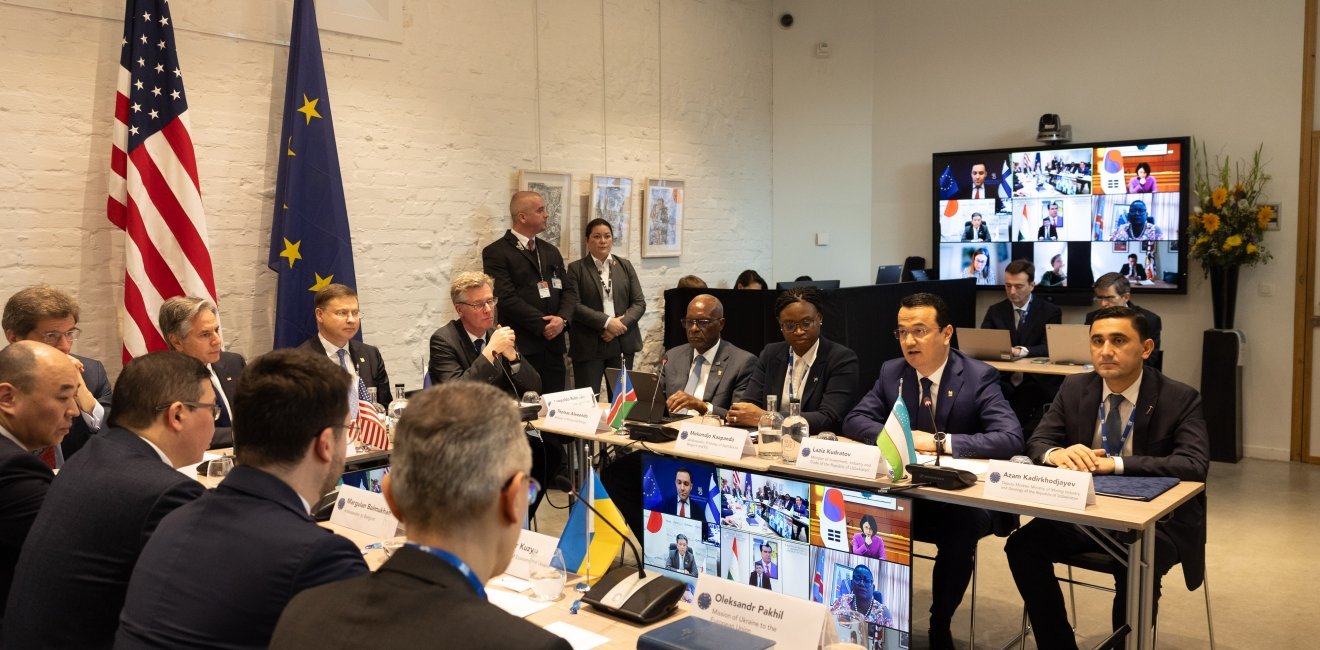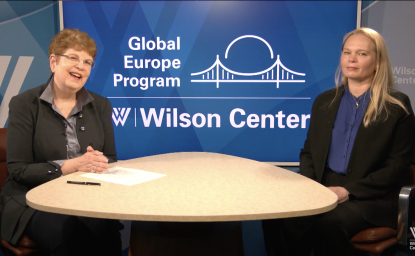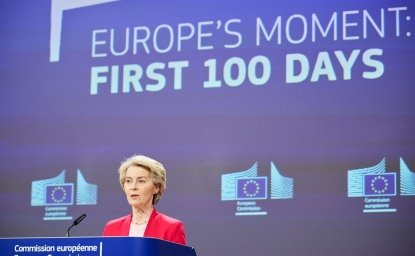Commissioners overseeing the portfolio, or parts thereof:
- Stéphane Séjourné, Executive Vice-President for Prosperity and Industrial Strategy
- Maroš Šefčovič, Commissioner for Trade and Economic Security; Interinstitutional Relations and Transparency
- Valdis Dombrovskis, Commissioner for Economy and Productivity; Implementation and Simplification
In her second term, European Commission President Ursula von der Leyen has created a set of portfolios that reflect a strong focus on productivity, innovation and competitiveness. This builds on the recent reports by Mario Draghi on the Future of European Competitiveness and Enrico Letta on the Future of the Single Market. As a result, several portfolios have interrelated responsibilities to address key issues of market access, unfair market practices, and economic security.
As the European Union responds to the challenge of global governance built on principles such as open markets, rules-based international trade, multilateralism, democratic regimes, collective security, and the rule of law, the portfolios reflect a decided shift away from a more neoliberal doctrine towards more interventionism in the economy including more offensive and defensive instruments to address what are perceived as increased economic security risks. The Political Guidelines of the next Commission (2024-2029) set out ambitions for economic sustainability and competitiveness against the systemic shocks that have led to a major rethinking of trade policies and their relations to other economic policy spheres.
The priorities of the new European Commission in this area include:
- Industrial Strategy to foster innovation, competitiveness and research, and to strengthen the technological and industrial base.
- Diversification of Supply Chains, reducing dependencies, and addressing vulnerabilities.
- Increase Trade and Economic Security to ensure that the European Economic Security Strategy is implemented to protect against unfair market practices.
- Strengthen the Single Market to reduce barriers to trade, address market fragmentation and simplify rules.
The portfolios allocated to specific Commissioners will necessitate dealing with different agencies and committees within the US federal branches. While each successive Commission results in the emergence of new portfolios as well as the continuation of traditional ones, there is a much stronger focus on economic intervention in the current appointments. As a result, Stéphane Séjourné will hold the Prosperity and Industrial Strategy portfolio, Maroš Šefčovič, will hold the rather diverse set of issues covering Trade and Economic Security; Interinstitutional Relations and Transparency, and Valdis Dombrovskis will be responsible for Economy and Productivity; Implementation and Simplification. While the latter two have held positions in the previous Commission, and are thus familiar with Washington, they will be working with a new administration as well as newly reconfigured portfolios. Although the newly titled trade and economic security portfolio may seem the most salient for the transatlantic relationship, issues of digital governance and industrial strategy for example will also be relevant to US policymakers.
Some of the issues on the agenda continue from the previous Commission including the Carbon Border Adjustment Mechanism, Capital Markets Union, and getting trade agreements “across the finish line”, including the long-delayed Mercosur agreement as well as concluding those with Mexico and Australia. Many of the priorities of the incoming Commission reflect a stronger focus on economic security and industrial strategies to reduce strategic dependencies, diversify supply chains, and strengthen innovation and investment. In particular, the Economic Security Strategy adopted in 2023 is still relevant as it focuses on inbound and outbound investment screening, dual use technologies, and export controls.
Commissioner Maroš Šefčovič will have a key portfolio where trade is "marked by stark competition over disruptive new technologies” He views trade as a "geostrategic tool”. He will be tasked with solving disputes with the US on steel and aluminum and pushing for changes to specific elements in the Inflation Reduction Act (IRA) so European companies can qualify for tax credits. Šefčovič views China as the most challenging trading partner given the dislocating effects of Chinese competition. The EU is pushing Chinese companies to transfer intellectual property in return for EU subsidies as part of an effort to avoid being undercut by cheaper and more polluting imports and fulfill its commitment to a “cleaner” trade regime. The EU has imposed 35% tariffs on Chinese electric vehicles under the previous trade Commissioner Dombrovskis. Šefčovič though wants to avoid trade wars and seek a negotiated settlement in an escalating trade dispute with Beijing over Electric Vehicle (EV) duties. He also addressed concerns about companies avoiding EU trade sanctions on Russia, particularly from China which supplies substantial dual use technologies. In the hearings, Šefčovič sent a strong message of cooperation with the US where interests align on China-related economic security matters.
The European Commission will continue to promote market access through different kinds of trade agreements. While an agreement with Mercosur countries, Brazil, Argentina, Uruguay, and Paraguay has been completed, it faces ratification difficulties. Šefčovič has pledged to continue working on free trade agreements (FTA) with Mexico and Australia and wants the EU to be more active in Thailand, the Philippines, and India, though the latter has often been a difficult trade partner. Bilateral negotiations on an FTA as well as the India-EU Trade and Technology Council (TTC), signal a continued focus on strategic partnerships by the EU.
In his confirmation hearing, Commissioner Séjourné highlighted the need to support the automotive, aeronautics, and steel sectors to meet the requirements of the Clean Industrial Deal as part of a simultaneous process of decarbonization and reindustrialization. The Commissioner pledged to set up an EU Competitiveness Fund to foster public and private investment in key sectors. Séjourné is concerned with reviewing rules on unfair trade practices.
Picking up the theme about European competitiveness and boosting the European economy, Commissioner Dombrovski wants to reduce the regulatory burden on business and foster rules that are easier to implement to simplify compliance costs. Dombrovski indicated two other issues that will be on his agenda: customs and taxes. He is concerned about the rollout of the global digital tax rules with the Commission pushing for global implementation to prevent a return to differing national digital services taxes or levies. He is also pushing to finalize reform of the EU Customs Code to address the growth of e-commerce and the increase in product standards and sanctions. The priorities across these portfolios will be to use all the available tools to strengthen trade and economic policies.
Transatlantic Cooperation & Engagement
The environment for transatlantic cooperation will be impacted by the degree to which tariffs are targeted at European member states and the EU. The reaction to those tariffs and the response may push Europe to shift exports to other markets. However, many of the exports hit with tariffs will be intra-company transfers going from Europe to United States-based manufacturers that employ workers in many US states. There are, however, some issue areas that will be beneficial for both European and American companies as Dombrovskis will be responsible for easing the administrative burden for businesses operating in the Single Market through reducing red tape, modernizing customs procedures, and prioritizing regulatory simplification through a dedicated portfolio.
Šefčovič would like to revamp the EU-US Trade and Technology Agreement by expanding some of the issues under discussion which have involved an array of topics that cut across different Commission portfolios. Transatlantic cooperation might be feasible if it involves cooperation on critical minerals, pursuit of market access, addressing Chinese unfair trade practices, outbound investment screening, promotion of international standards, reducing regulatory burdens on business and addressing supply chain vulnerabilities. The European Economic Security Strategy parallels actions in the United States with a greater focus on safeguard measures under the guise of ‘national security’ concerns. This could facilitate transatlantic dialogue as the development of new disruptive technologies, weaponization of economic dependencies, and increased competition setting international standards has generated rising geopolitical competition.
The EU would like to pursue an agreement on critical minerals so that it can qualify for tax credits under the IRA. Since a March 2023 announcement, the United States and the EU have been negotiating a Critical Minerals Agreement (CMA). There are differences in how the US and EU incentivize green technologies. The EU Green Deal uses non-tax incentives, such as carbon pricing, binding targets, performance standards, and sectoral regulations whereas the United States uses tax credits. The implementation of the EU’s Carbon Border Adjustment Mechanism (CBAM) is of concern in the United States given the implications of taxes on imported goods based on their attributed carbon emissions. Though the two sides agree on the objectives of reducing the carbon intensity of steel and aluminum and of combatting surplus capacity in the steel industry, they are still far apart in how to achieve those goals. The European Union and the United States have agreed that Washington will continue to suspend tariffs on EU steel and aluminum until March 2025 as efforts continue to reach agreement on a Global Arrangement on Sustainable Steel and Aluminum (GSA).
There are also some potential concerns moving forward. Bracing for tariff hikes, even if not in the initial round of targeted countries, the European Union will face challenges from the new administration’s efforts to decouple from China and the pressure to reduce their trade imbalances with the United States even though there is significant overlap between the United States and the EU on combating unfair trade practices and excess capacity from China as Séjourné indicated that would create the potential for deeper transatlantic cooperation.






